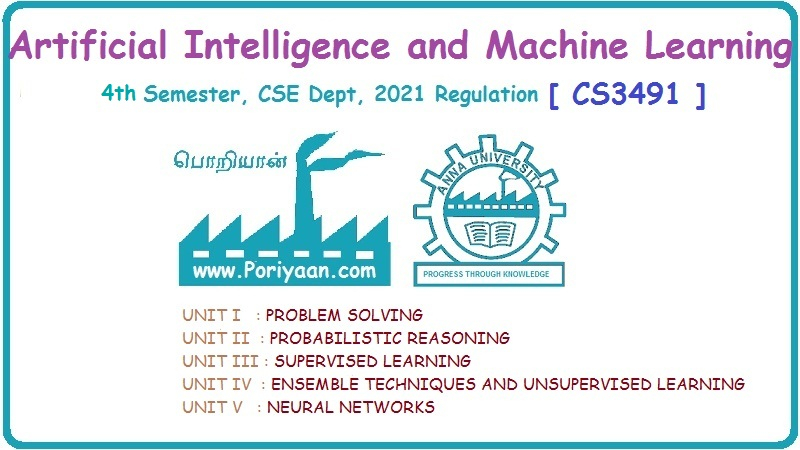Artificial Intelligence and Machine Learning: Unit I(e): Adversarial search
Definition of Game
Adversarial search - Artificial Intelligence and Machine Learning
A game has at least two players. Solitaire is not considered a game by game theory. The term "solitaire" is used for single-player games of concentration.
Definition
of Game
1. A
game has at least two players. Solitaire is not considered a game by game
theory.
The
term "solitaire" is used for single-player games of concentration.
2.
An instance of a game begins with a player, choosing from a set of specified
(game rules) alternatives. This choice is called a move.
3.
After first move, the new situation determines which player to make next move
and alternatives available to that player.
i)
In many board games, the next move is by other player.
ii)
In many multi-player card games, the player making next move depends on who
dealt, who took last trick, won last hand, etc.
4.
The moves made by a player may or may not be known to other players. Games in
which all moves of all players are known to everyone are called games of
perfect information. For example,
i)
Most board games are games of perfect information.
ii)
Most card games are not games of perfect information.
5.
Every instance of the game must end.
6.
When an instance of a game ends, each player receives a payoff. A payoff is a
value associated with each player's final situation. A zero-sum game is one, in
which elements of payoff matrix sum to zero. In typical zero-sum game:
i) Win
= 1 point,
ii)
Draw = 0 point,
Artificial Intelligence and Machine Learning: Unit I(e): Adversarial search : Tag: : Adversarial search - Artificial Intelligence and Machine Learning - Definition of Game
Related Topics
Related Subjects
Artificial Intelligence and Machine Learning
CS3491 4th Semester CSE/ECE Dept | 2021 Regulation | 4th Semester CSE/ECE Dept 2021 Regulation
